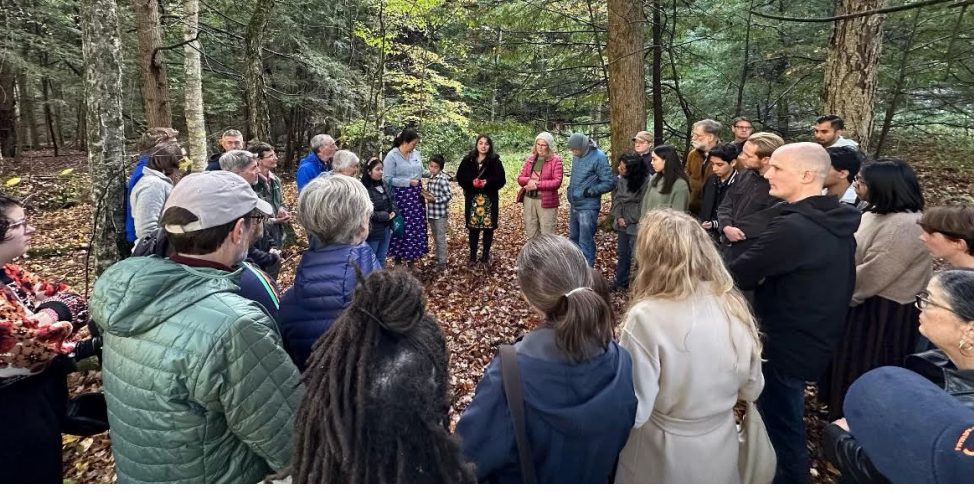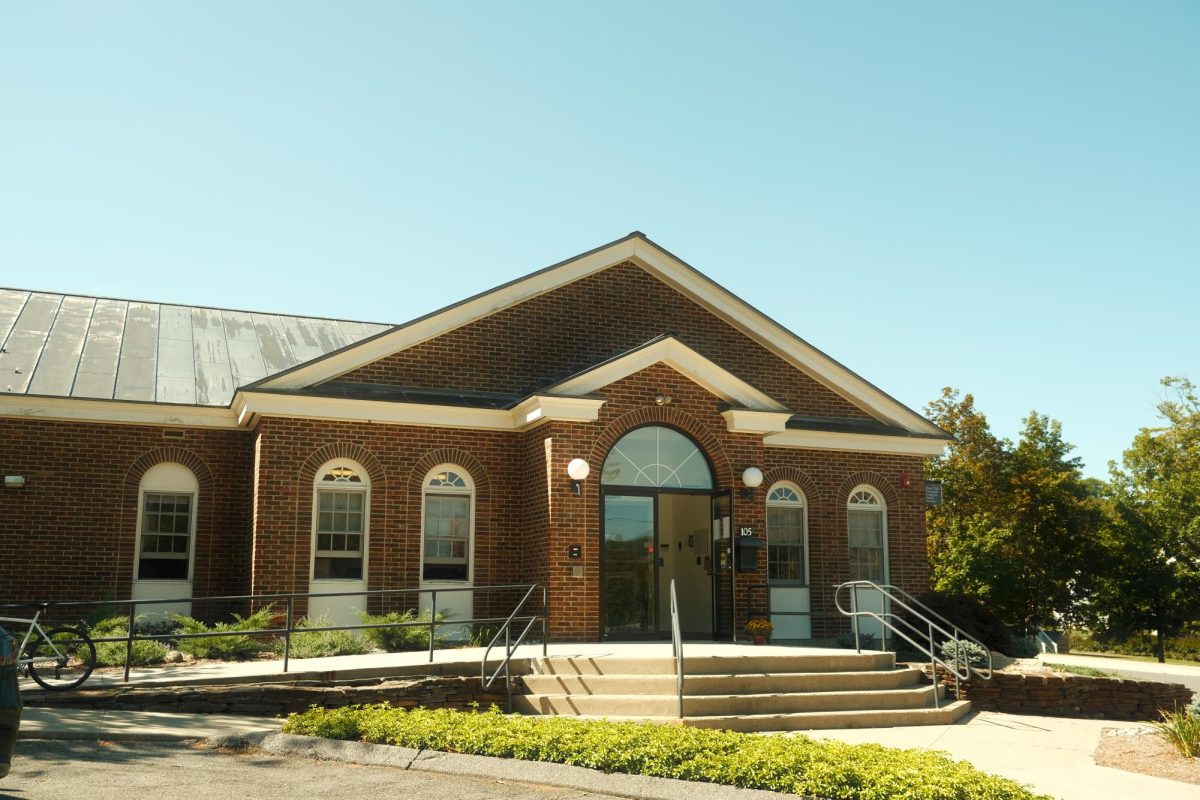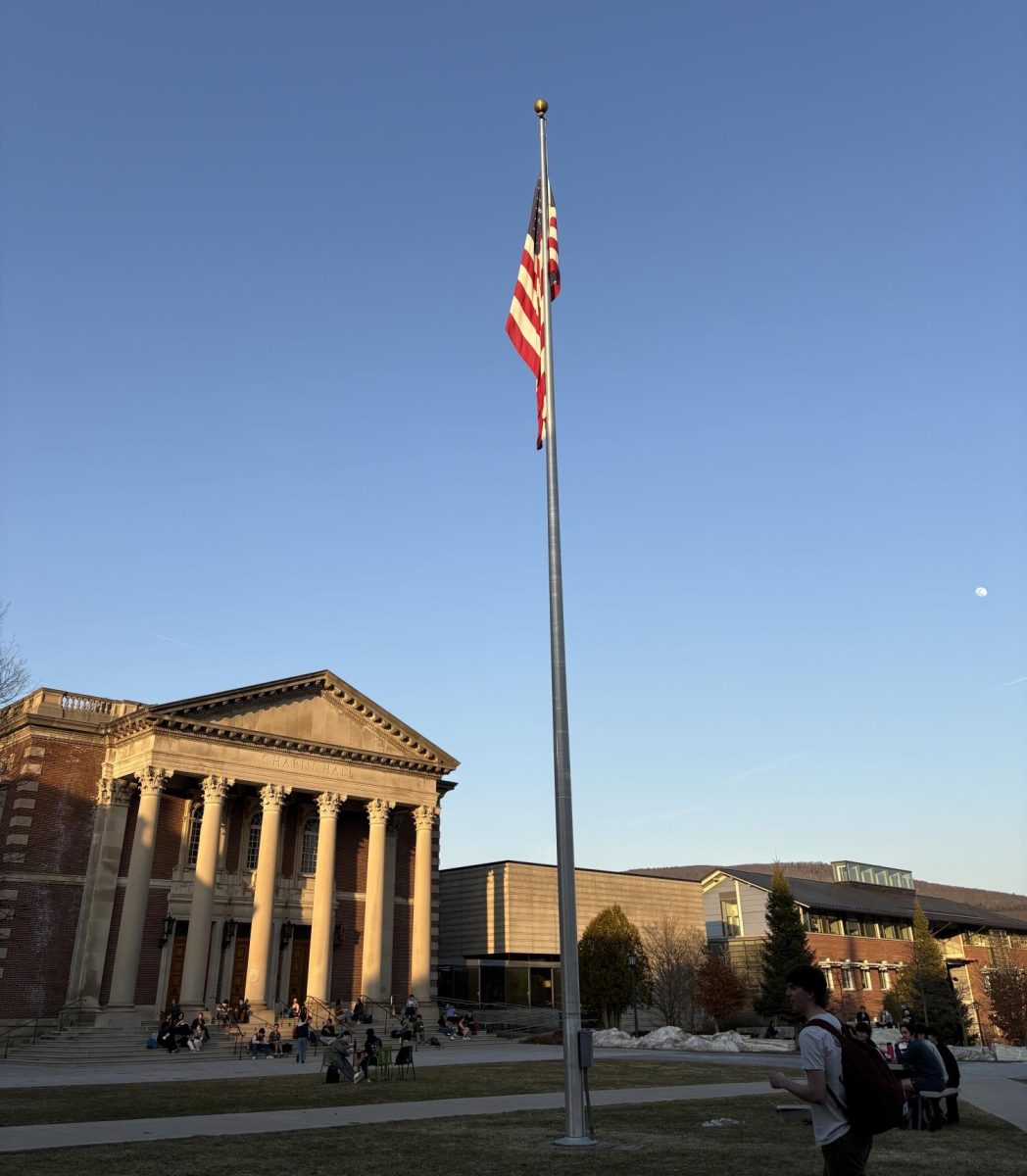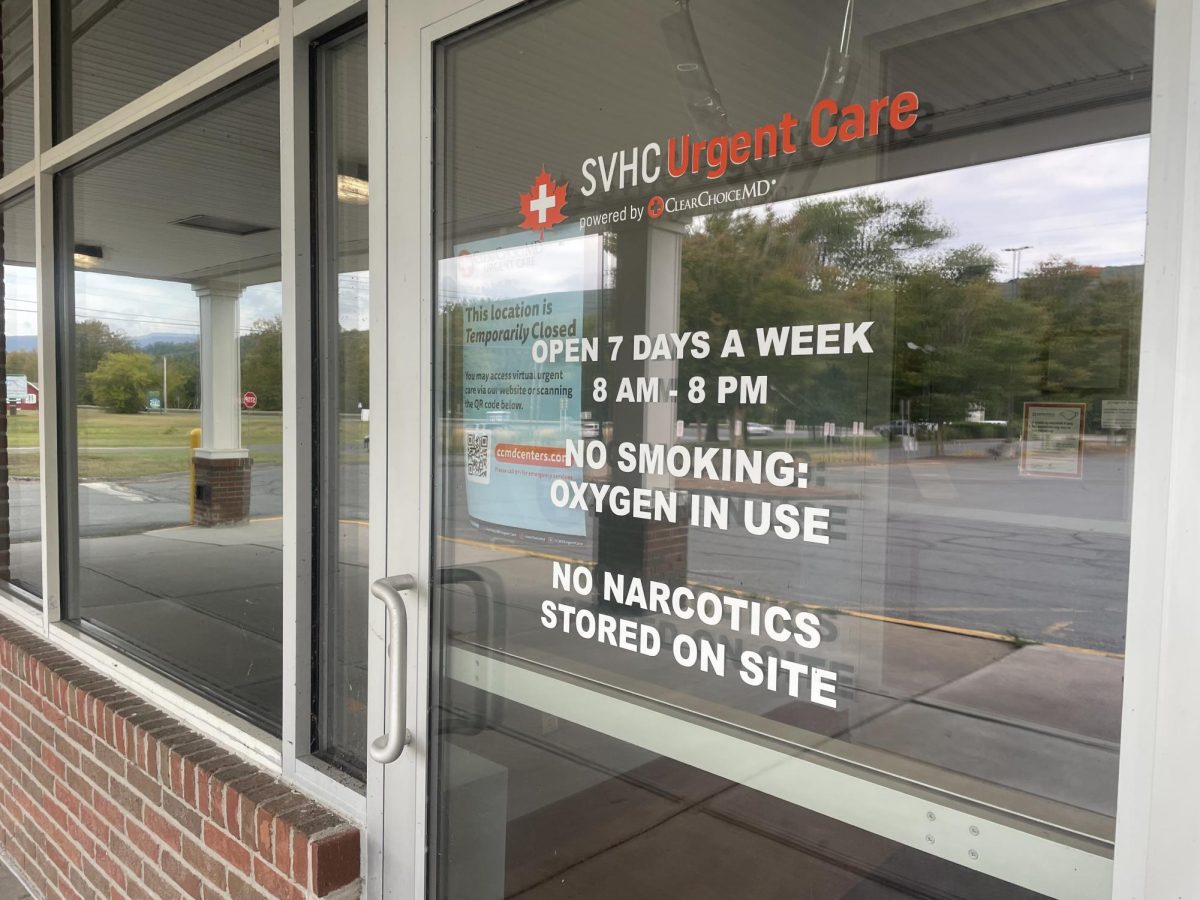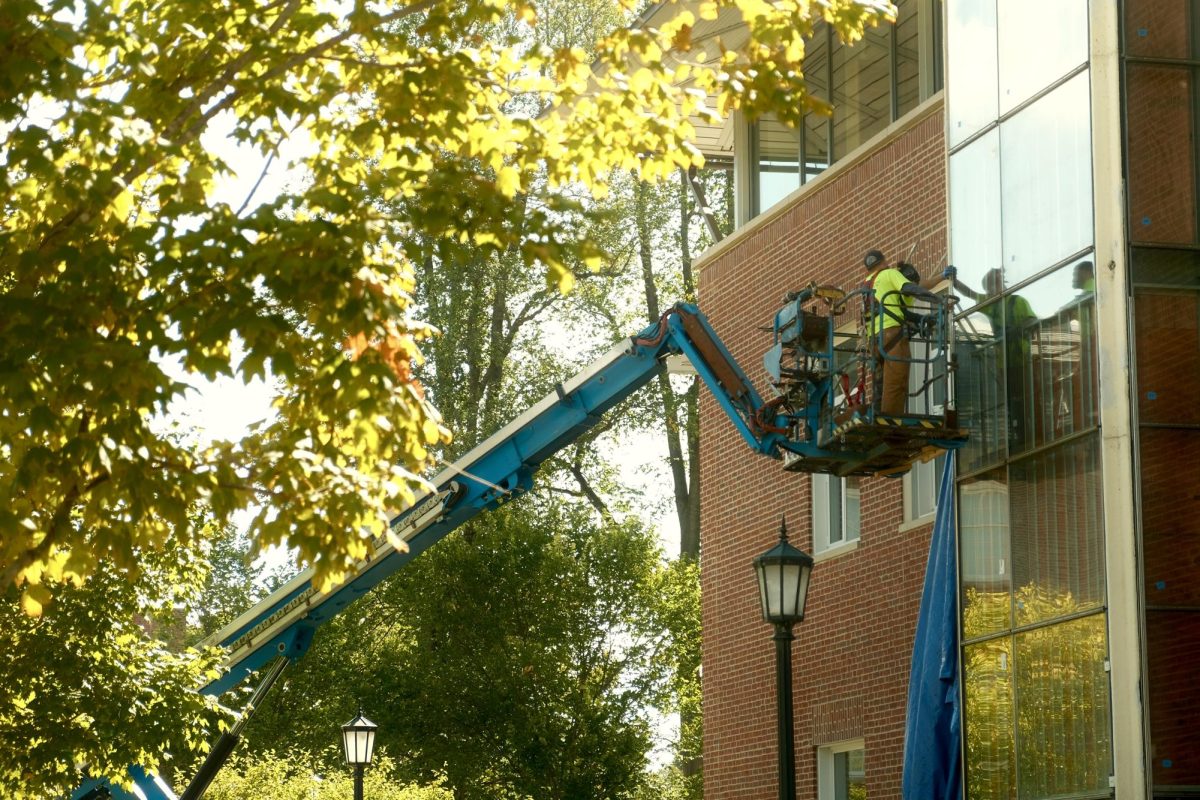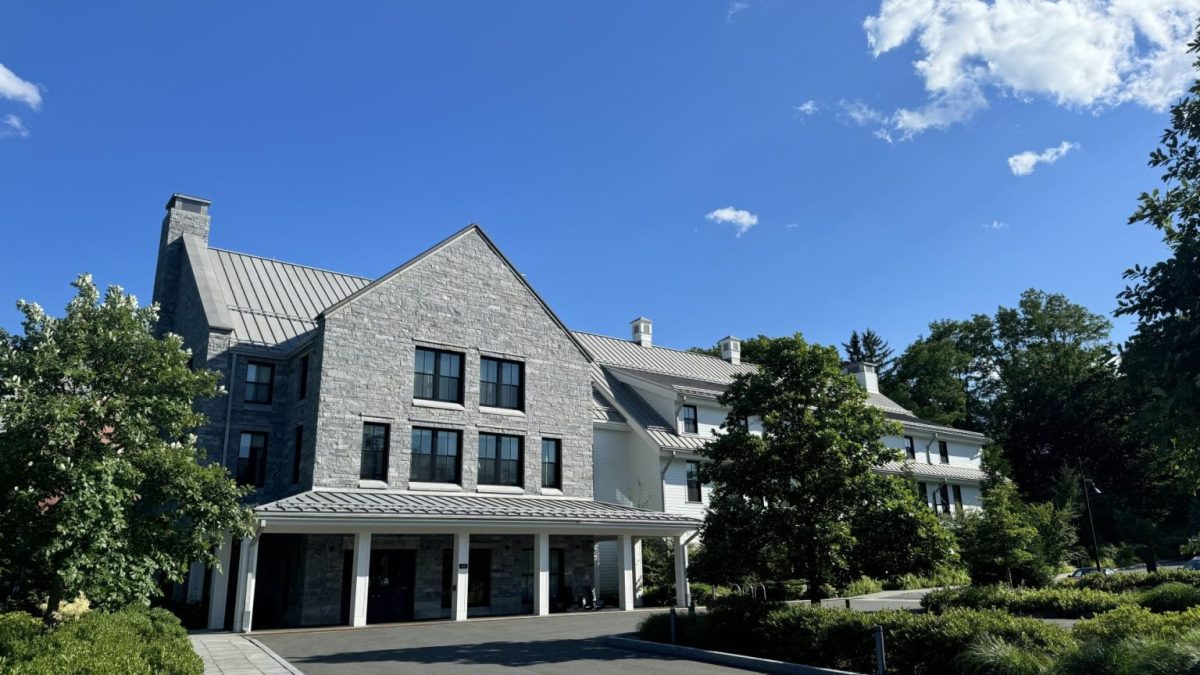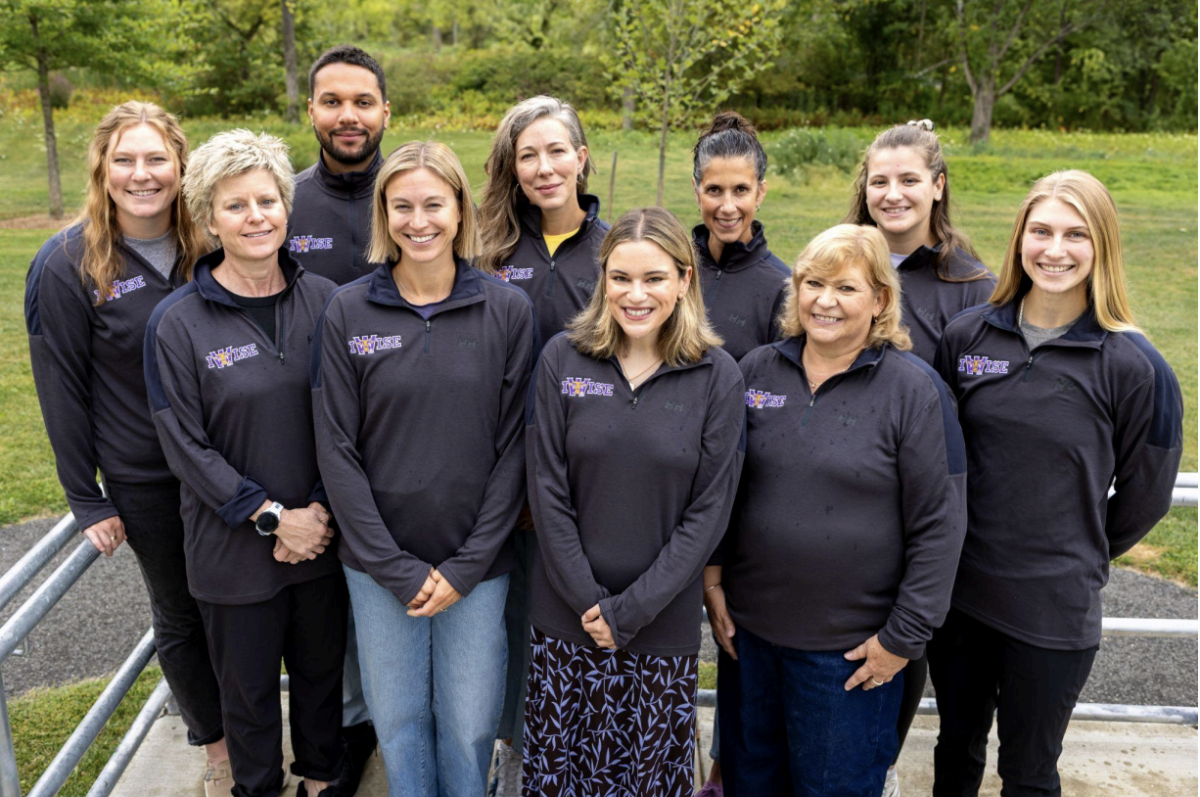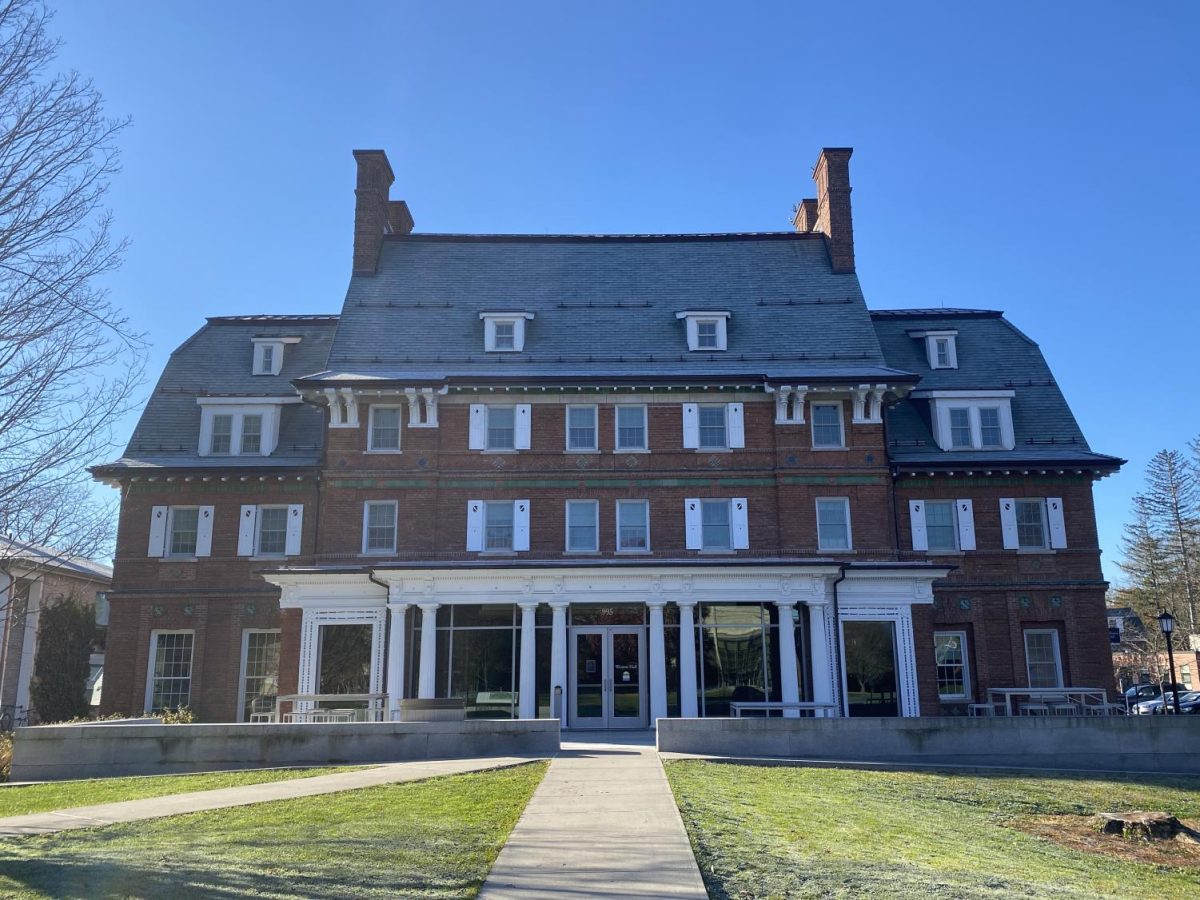The Stockbridge-Munsee Tribal Historic Preservation Office and the Native American Indigenous Student Alliance (NISA) celebrated new signage honoring the Mohican people and their history in Williamstown on Oct. 9, Indigenous Peoples’ Day.
Williamstown Rural Lands (WRL), a land conservation trust, assisted in planning the event.
Attendees first gathered at Cold Spring, a body of water that the Mohican people governed under a model of shared stewardship. In the mid-18th century, they created an agreement with European colonial settlers that the spring would be “kept forever free and accessible for the benefit of all,” according to signage at the Cold Spring site. The spring’s open access is maintained to this day by WRL.
Bonney Hartley, the tribal historic preservation manager for the Stockbridge-Munsee Mohican Nation, began the event by discussing the significance of Cold Spring to the Stockbridge-Munsee community. She also instructed attendees on how to offer tobacco to the spring.
In an email to the Record, Hartley wrote “attendees were invited to make an offering to the land and welcomed to smudge, or traditionally cleanse themselves as they entered the space.”
Afterward, Berenize Garcia Nueva ’24 explained how environmental pollution has impacted Cold Spring, once a major freshwater source for Williamstown and the College. Through research with the Williams College Environmental Analysis Lab, Garcia Nueva found that high levels of fecal matter have now rendered the spring undrinkable.
In an email to the Record, Garcia Nueva wrote about her research and the event at Cold Spring. “As an Indigenous woman, I found myself reflecting about the numerous tribes around the world protecting and advocating for environmental conservation and protection,” she wrote. “Historically and even now, Native and Indigenous people have been the first line of defense when nations, corporations, and other institutions have endangered natural environments.” The lab also hopes to continue testing local springs and finding ways to clean and maintain them, Garcia Nueva wrote.
Daisy Rosalez ’25 then gave a speech outlining NISA’s goals, including hosting another Indigenous Peoples’ Event next year and re-testing Cold Spring.
Robin Sears, the executive director of WRL, then reflected on the importance of allyship and the struggles of the Stockbridge-Munsee Mohican community.
After the ceremony, attendees went to a luncheon hosted at Sheep Hill, an old dairy farm and the WRL headquarters. Chef Melissa Baehr of Indigenous Deliciousness, an Indigenous female-owned business that works with Indigenous growers, producers, and products, prepared the luncheon. The luncheon’s menu included items such as maple-glazed smoked bluefish, Three Sister purple potato hash and sweet corn cake — all menu items included ingredients from Indigenous producers.
In an interview with the Record, Baehr discussed the Indigenous food sovereignty movement’s network. “There’s a fantastic network of educators and organizations out there doing the groundwork, and I’m really proud,” Baehr said. “They’re doing the work in their communities, and part of Indigenous Deliciousness [is that] when I choose to highlight these producers, most of the producers and the most of the chefs that I try to work with are people that are really doing work in their communities.”
Ivonne García, assistant vice president for the Office of Institutional Diversity, Equity and Inclusion, emphasized the ways in which the event was student-led.
“Change in higher education has happened because of students, because of student activism, because of student actions,” she said in a Record interview. “That says a lot, because that’s a burden on the students who have to advocate for themselves.”
García also spoke on the College’s collaboration with Hartley. “I think that that’s something the institution as a whole, not just [OIDEI], can be doing more of — partnering with [the Tribal Historic Preservation] Office to do more of this kind of integrative and collaborative conversations, programming.”
Doralynn Ventura Lopez ’27, who attended the ceremony, also provided her reflections on the Indigenous Peoples’ Day event and hopes for the future. “My hope for the College is that it commits to sustained efforts to reconcile with the Stockbridge Munsee-Mohican community, not as a one-time initiative, but as a continuous commitment,” she told the Record. “Regular progress reports can ensure the College’s commitment.”



